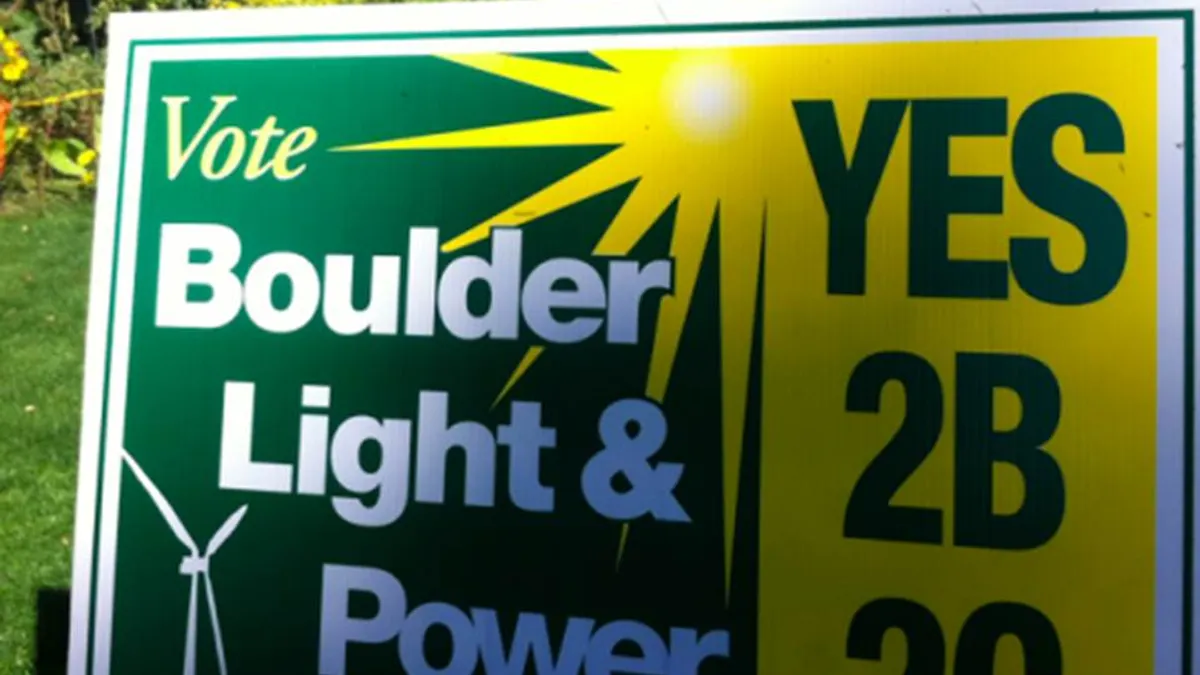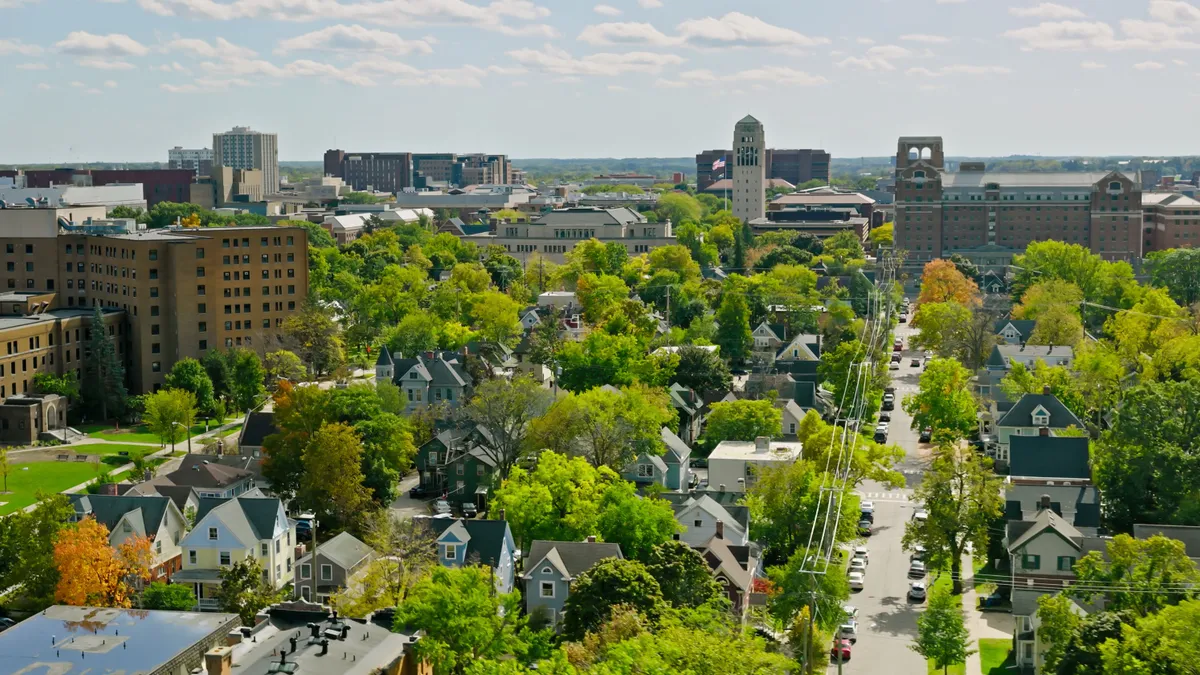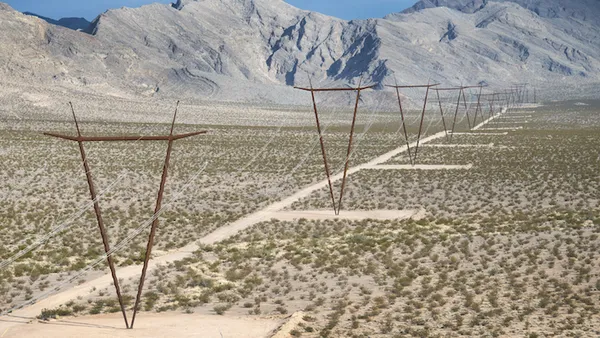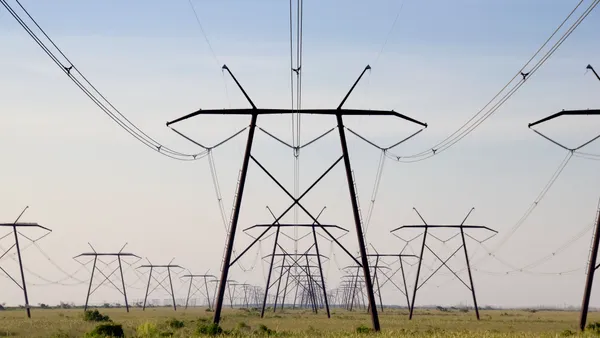Dive Brief:
- A trial-like proceeding will begin later this month in the ongoing efforts of Boulder, Colo., to form a municipal utility. The five-year effort may be moving into the final stages, The Daily Camera reports, with new proposals better aligning the city and Xcel Energy.
- A new proposal from the city outlines a scenario where Xcel continues operating distribution system assets and controlling construction during the city's separation. That differs from earlier city strategies, including the use of eminent domain to wrest control of the distribution system, or buying the assets and leasing them back to Xcel.
- The utility has opposed the efforts and Boulder has not been able to take them over by legal means. Simultaneously, the city and Xcel have been negotiating for a cleaner energy mix and more customer choice that could lead Boulder to drop its municipalization bid.
Dive Insight:
The Daily Camera reports an eight-day trial-like proceeding begins April 26, assuming the utility and city do not reach an agreement before. Both have indicated they remain at the negotiating table.
Should the proceeding go forward, Boulder's latest plan involves Xcel maintaining control over the system for a five-year transition period followed by the city purchasing the assets in 2022. The price of the assets could become a sticking point also — voters approved spending up to $214 million when they authorized the muni bid in 2013.
A settlement is still possible, and the city has raised the idea of a negotiated agreement or collaboration with Xcel in the past — a commitment from the utility to supply more renewable power and reduce emissions.
Last year, Jonathan Koehn, regional sustainability coordinator for Boulder, told Utility Dive, "we really are pursuing parallel paths in terms of our energy goals ... I think there is a perception we somehow hate one another but that just isn’t true. There’s litigation, but that’s how you get through these things."
Boulder's first application, filed in 2015, proposed transferring assets from Xcel to allow the city to serve customers outside the incorporated lines. Regulators blocked that plan, leading the city to consider alternatives.














